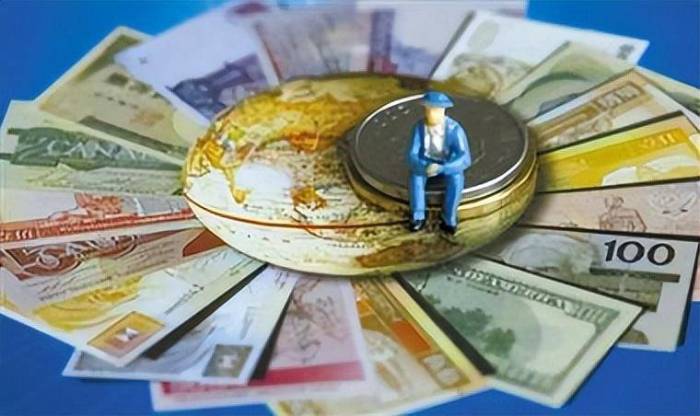The landscape of global finance is shifting dramatically, and the implications of this change could have far-reaching effects on both the Chinese and U.S. economies. The exodus of capital from U.S. banks by Chinese manufacturers represents a scenario that many see as troubling, particularly for American interests. Following the Federal Reserve's interest rate hikes that began in 2022, Chinese entities found themselves in a favorable position to earn substantial returns on deposits in U.S. banks, accumulating around $2 trillion in liquid assets. This amounted to a strategic choice during a time of uncertainty and high interest, allowing Chinese firms to benefit from interest rates that surpassed those in their home country.
However, the dynamics have begun to change since the latter part of 2023. After July, there was a marked shift in the willingness of export firms to convert their foreign currencies back to renminbi. By August 28, the offshore renminbi exchange rate had appreciated from 7.3 to around 7.1 against the dollar, as the dollar index began to decline significantly, reaching a yearly low of 100.51 by last night.
This trend indicates growing confidence among Chinese exporters regarding the renminbi, as they anticipate a potential shift in U.S. monetary policy with rate reductions expected in September. With broader consensus forming around the idea of renminbi appreciation alongside dollar depreciation, Chinese companies may increasingly opt to convert their U.S. dollar holdings back into renminbi for repatriation.
Advertisement
The return of over $2 trillion back to China raises critical questions about its impact on the dollar and the implications for the Chinese economy. Specifically, how might such a flow of capital affect exchange rates and economic stability?
As the adage goes, "The goods are sold, but the money hasn't come back." Data from Morgan Stanley indicates a hesitance from Chinese exporters toward currency conversion since the Fed’s rate increases began in March 2022. The stark reality is that U.S. bank deposits offered attractive rates of 5.25%, while Chinese deposits languished at around just 2%. As expectations of further hikes loomed, the exchange rate fell sharply from 6.3 to 7.3—an astonishing 15% dip. The weight of high interest rates and rapid currency depreciation made it unpalatable for Chinese firms to convert their earnings, effectively stymying the flow of capital back home.
For many exporters, converting funds meant incurring losses; better to leave the money in U.S. accounts and enjoy a guaranteed interest yield. Consequently, by July, the currency conversion rate stood at a historic low of merely 13.5%—indicating that for every $100 earned in export revenue, only $13.50 was exchanged for renminbi.
The landscape is set to transform, particularly if the Federal Reserve adopts a policy of rate cuts. By narrowing the interest rate differential between U.S. and Chinese assets, the appeal of dollar investments may diminish significantly. Our conservative estimates suggest that up to a trillion dollars could flow back into Chinese markets.
In recent exclusive reports from Caixin Media, it has emerged that many executives of export-oriented companies have started converting dollar payments into renminbi almost immediately upon receipt since late July. This trend is not just an emotional reaction to shifting interest rates but reflects a systematic approach coinciding with seasonal peaks in currency conversion.
The pressure on the dollar to depreciate may intensify as numerous companies switch to currency conversion, resulting in significant market fluctuations. This brings to light a critical balance: which currency will face greater pressure—the dollar or the renminbi?
Forecasting from CITIC Securities suggests that the conversion of around $10 billion could elevate the renminbi's worth against the dollar by an estimated 100 basis points (or 0.1%). If foreign trade firms successfully repatriate a trillion dollars, the renminbi could see a short-term appreciation of about 10%. Conversely, if $2 trillion were entirely repatriated, the renminbi might elevate by an even more significant 20%.
With the renminbi poised to appreciate, a corresponding depreciation of the dollar is inevitable, placing enormous pressure on dollar assets as we approach September. Moreover, from an economic viewpoint, the rising defaults in the U.S. housing market, which have now surpassed 4%, present additional risks for the dollar's stability. With more homeowners straining to meet mortgage obligations, the threat of systemic defaults looms, potentially sending shockwaves through the American real estate market if substantial amounts of capital exit.

The implications for the U.S. economy post-Fed rate cut could be highly disruptive. In contrast, the return of $2 trillion to China would likely drive asset prices upward, causing a ripple effect across the domestic market.
Yet, rapid appreciation or depreciation of the renminbi presents its own challenges. The China Banking and Insurance Regulatory Commission has repeatedly emphasized the need for a balanced approach to currency valuation. Stability is essential for export companies, as it enables them to manage the costs of imported raw materials while competitively pricing their goods abroad.
Alongside this, the influx of hot money may spark pressures on prices and inflation, creating potential hurdles for China’s financial landscape. As such, appropriate measures must be put in place, especially to address any socio-economic challenges that arise; increasing supply to stabilize market prices could become necessary.
Forecasts from international investment banks predict a stable appreciation of the renminbi through the end of this year, potentially reaching values between 6.8 and 6.9 on the offshore market. As the currency strengthens, more speculative international capital may also look to capitalize on the rising renminbi, which poses challenges for the People's Bank of China when managing excess foreign reserves.
The potential for deeper internationalization of the renminbi is transforming China's financial landscape. A robust renminbi could encourage countries to engage in bilateral trade using Chinese currency, ultimately enhancing its status as a global financial player. The outcome of these economic transitions remains to be seen, but one thing is clear: the world is closely watching as these two powerhouses navigate the intricacies of global finance.
- 2024-09-28
Leave Your Comment